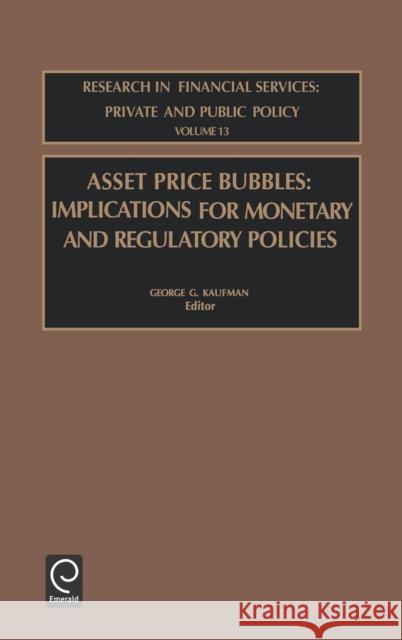Asset Price Bubbles: Implications for Monetary and Regulatory Policies » książka
Asset Price Bubbles: Implications for Monetary and Regulatory Policies
ISBN-13: 9780762308453 / Angielski / Twarda / 2001 / 256 str.
Asset price bubbles have been and continue to be an area of major public policy concern in many countries. But while we know that the bursting of such bubbles is exceedingly painful and destructive to the economy, little is known of their causes. Indeed, there is little agreement even on the definition of a bubble and whether, whatever it is, is economically rational or irrational and reflect temporary excessive exuberance. Can bubbles be identified ex-ante before they burst? Often, one person's perceived bubble is another's perceived equilibrium price path. How and when is a bubble recognized? Should asset prices be a concern for monetary or fiscal policy makers and, if so how and when should policy-makers act? Should monetary policy attempt to target and stabilize asset prices the same as product prices? Should monetary policy act quickly at the beginning of the bubble or wait until the perceived bubble has been underway for some time? For how long? Will bubble restraining policies burst a bubble? Would it have burst on it's own? How can the damage done after bubbles be minimized? Does the experience of the U.S. in the 1920s and of Japan in the 1990s provide any lessons and guidelines for these and other countries in the 2000s? The papers in this volume examine these and other aspects of asset price bubbles from the perspective of different times and different countries. The authors are experts who represent different countries, different economic philosophies, and different backgrounds - academic, government, bank regulatory agency and private. As a result, the papers add greatly to our storehouse of knowledge about asset price bubbles and hopefully will continue to more successful public and private policies for restraining both the bubbles and their consequences and improving economic welfare.











